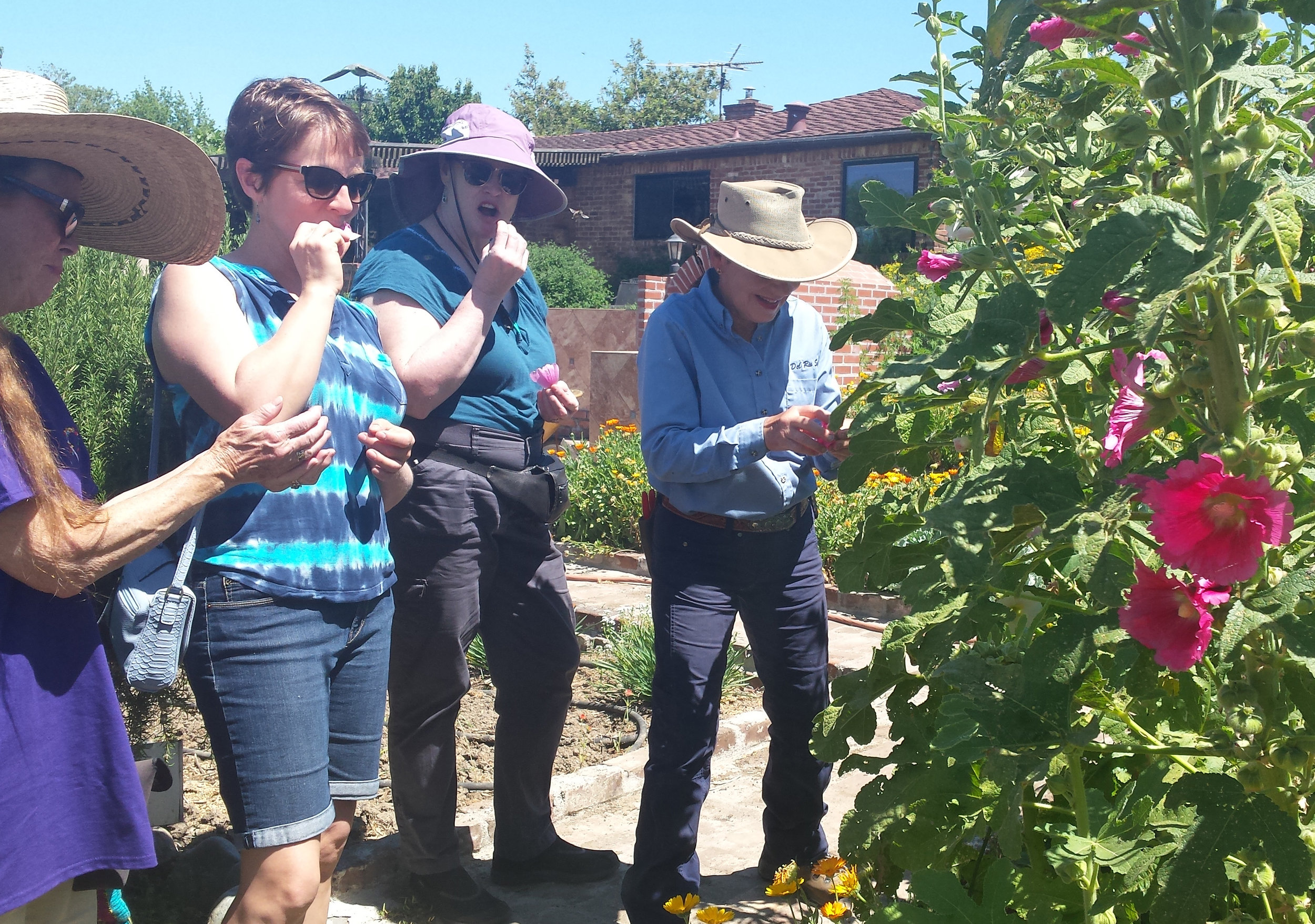by Marti Meyer
APLD-CA SACRAMENTO DISTRICT
(L to R) Marian Bender, Mary-Lee Gilliland, Del Rio's Suzanne Ashworth, Hope Nelson, Soleil Tranquill, Larry Landis (Soleil’s husband), Martin Carrion van Rijn, Gary Kernick, Bernadette Balics, Marti MeyerCredit: Marti Meyer
On a toasty hot Saturday in May, the APLD Sacramento District toured Del Rio Botanical Farm, a certified organic seed and vegetable production farm in West Sacramento. The Sacramento River, one of the most important bodies of fresh water in California, is a stone’s throw away and supplies the farm’s water, allowing third-generation proprietor of Del Rio, Suzanne Ashworth, to harvest open-pollinated seed and produce year round on 68 acres.
Suzanne is author of Seed to Seed, an authoritative reference on seed propagation and preserving varieties for future generations. With a collection of over 1,600 types of seeds, she works closely with many farms and national organizations on seed-saving projects. Del Rio harvests vegetables, fruits and herbs throughout the year for its consumer supported agriculture (CSA) boxes and specialty restaurants.
On our tour Suzanne led us through the gardens, introducing her goats, chickens and Japanese coternix quail along the way. She offered samples of an amazing variety of fruits, vegetables and herbs, as well as cheese made from the farm’s goat milk.
We lingered to discuss some of the farm’s most unusual varieties and some of their unexpected uses:
Hollyhock, alpine strawberry, and loquat at Del Rio Farm. Credit: Soleil Tranquilli
Vegetables: spineless nopal, purslane (Portulaca oleracea), lambs sorrel (Rumex acetosella), radish seed pod, avocado leaf (licorice flavored, cook with beans)
Herbs: toothache plant (Acmela oleracea), poisonous porcelainberry (Ampelopsis brevipedunculata), clove basil, medicinal tea (lippia alba), Aztec sweet herb (Lippia dulsis), horseradish leaf (use to wrap fish and grill), lovage stem (sip a Bloody Mary through it for enhanced flavor), comfrey, yerba mansa (tea, medicinal tinctures), fish sauce plant (Houttuynia cordata)
Fruits: alpine strawberry, Pakistani mulberry (we dallied longest here!), tangerine lemon, limequat
Tasting hollyhock petals. Credit: Soleil Tranquilli
Edible flowers: pineapple guava, calendula, mallow, alyssum, daylily, hollyhock petal
After the tour our Del Rio experience continued in downtown Sacramento, where we ate lunch at Hot Italian, which uses many of the farm’s products.


